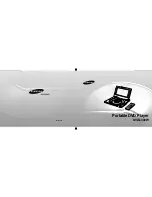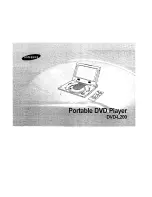
19 — English
MAINTENANCE
CHECKING/CLEANING AIR FILTER
See Figures 11 - 12.
For proper performance and long life, keep air filter clean.
Loosen the knob on the side of the engine cover. Remove
cover and set aside.
Loosen the screw in the center of the air filter cover.
Remove the cover and set aside.
Remove the air filter.
Wash the air filter with warm, soapy water. Rinse and
squeeze to dry.
Reinstall the air filter.
NOTE:
Make sure the filter is seated properly inside the
generator. Installing the filter incorrectly will allow dirt to
enter the engine, causing rapid engine wear.
Reinstall the air filter cover. Tighten screw to secure.
Reinstall the engine cover. Tighten screws to secure.
CHANGING ENGINE LUBRICANT
See Figure 13.
For best performance, engine lubricant should be changed
after every 100 hours or 6 months of operation.
Loosen the knob at the side of the engine cover. Remove
cover and set aside.
Loosen the two screws and remove the oil drain cover.
Remove the oil fill cap/dipstick.
Tilt the generator to the side and allow lubricant to drain
from the oil fill hole into an approved container.
NOTE:
Drain the lubricant while the engine is still warm
but not hot. Warm lubricant will drain quickly and more
completely.
WARNING:
Do not change engine lubricant while it is hot. Accidental
contact with hot engine lubricant could result in serious
burns.
Return the generator to an upright position and refill with
lubricant following the instructions in the
Checking/
Adding Lubricant
section previously in this manual.
For amount of lubricant needed to refill, see
Product
Specifications
earlier in this manual or the accompanying
engine manual, if applicable.
Replace and secure the oil cap/dipstick.
Reinstall the oil drain cover and tighten the screws.
Reinstall the engine cover.
NOTE:
Used lubricant should be disposed of at an approved
disposal site. See your local retailer for more information.
SPARK PLUG REPLACEMENT
See Figure 14.
The spark plug must be properly gapped and free of deposits
in order to ensure proper engine operation. To check:
Remove the engine cover.
Remove the spark plug cap.
Clean any dirt from around base of spark plug.
Remove spark plug using spark plug wrench.
Inspect spark plug for damage, and clean with a wire
brush before reinstalling. If insulator is cracked or
chipped, spark plug should be replaced. For replacement
spark plug, see
Product Specifications
earlier in this
manual or the accompanying engine manual, if applicable.
Measure plug gap. The correct gap is 0.024−0.028 in.
(0.60-0.70 mm). To widen gap, if necessary, carefully
bend the ground (top) electrode. To lessen gap, gently
tap ground electrode on a hard surface.
Seat spark plug in position; thread in by hand to prevent
cross-threading.
Tighten with wrench to compress washer. If spark plug
is new, use 1/2 turn to compress washer appropriate
amount. If reusing old spark plug, use 1/8 to 1/4 turn for
proper washer compression.
NOTE:
An improperly tightened spark plug will become
very hot and could damage the engine.
NOTICE:
Be careful not to cross-thread the spark plug. Cross-
threading will seriously damage the product.
Reinstall the spark plug cap.
Reinstall the engine cover. Tighten screws to secure.
CLEANING THE EXHAUST PORT AND
MUFFLER
Depending on the type of fuel used, the type and amount of
lubricant used, and/or your operating conditions, the exhaust
port and muffler may become blocked with carbon deposits.
If you notice a power loss with your gas-powered products,
you may need to remove these deposits to restore perfor-
mance. We highly recommend that only qualified service
technicians perform this service.
SPARK ARRESTOR
See Figure 15.
NOTICE:
This product is equipped with a spark arrestor that has
been evaluated by the USDA Forest Service; however,
product users must comply with Federal, State, and
local fire prevention regulations. Check with appropriate
authorities. Contact customer service or a qualified
service center to purchase a replacement spark arrestor.
















































